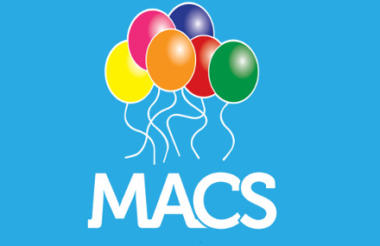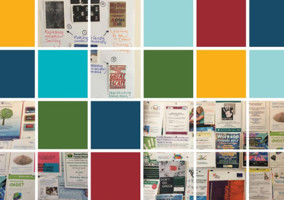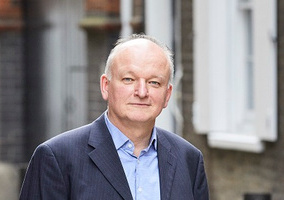When I began volunteering for MACS over two years ago, little did I expect that it would be one of the very best organisations I’ve had the pleasure to work with. Set up nearly 25 years ago to support children born without eyes or with underdeveloped eyes, and supporting over 2000 people, I never expected it to feel quite so much like an edgy and exciting start up. I’ve been surprised and delighted by how dynamic and developmental the experience has been – and here are some of the reasons why.
The perks
Whilst we may not have the endless coffee and bagels you might expect in a Silicon Valley start-up, as a small organisation, we have the opportunity to make our workplace work for us. In MACS that looks like uber-flexible working as the norm. I work on MACS projects one day a week, and like the rest of the team, I’m home based.
While charity peers complain of struggling to recruit a good fundraising manager, in our recent recruitment we were overwhelmed with talent. Of the six appointable candidates we interviewed, five of them said they would have been less likely to apply if the post had been based in London. Nowadays, being open to home-based and part-time working is a huge perk for employees, and it allows us to attract truly exceptional staff.
The career opportunities
Promotion from administrator to project manager in a year, anyone? Within a very small staff team, in small charities and in start-ups, people have the chance to shine, and make a job their own. We’re proud of the development opportunities we give to our staff, from stretching objectives, to conferences and leadership symposia. A key part of our success, and the rapid promotion of our staff, has been effective upskilling of the team through affordable training and free one-to-one advice sessions from the Foundation for Social Improvement.
The youthfulness and diversity
The chair of our Board of Trustees (who happens to be registered blind) is 26, and the average age of our trustees is around 37. Compared to the UK trustee average age of 61, we are outliers. That’s because, like a start-up, our small charity gives talented people the opportunity to prove themselves, regardless of their length of service. It’s not that we don’t value experience, but we believe that diversity - including of gender, sexual orientation, ethnicity, and age - strengthens our team, and helps us serve our beneficiaries better.
The creativity and innovation
Constraints drive creativity, but at the same time, we are unconstrained by a strict hierarchy, so can quickly test innovative solutions. Like any start-up, as small charity we’ve had to find innovative ways to provide better services with our limited funding. Successful new collaborations with other charities to provide services to our young people, like working with SportsAble, a leading disability sports centre, doesn’t cost much, but allow us to provide valuable new experiences. We’re also excited to develop collaborations and use insight from public and private sectors. So far, we’ve introduced a number of rigorously evidence based interventions approved by an official What Works Centre, The Early Intervention Foundation. And without multiple layers of sign-off, we can make decisions quickly, for example, choosing to enter the Small Charity, Big Impact awards with little notice – and surprise ourselves by winning.
The drive and passion
Like employees of an ambitious new company, as a team we are passionate about our cause. There’s no corporate cynicism to be found here. All members of our team have a personal investment in seeing MACS succeed, and they bring enthusiasm and passion to everything they do. Like myself, all the trustees are also beneficiaries of the charity, so we have a personal and emotional connection to the work that we do. And for staff members, being part of a very small team means they feel committed, loyal and fiercely proud of the charity.
It is the passion and commitment of the people that makes my small charity an outstanding organisation to work for, and it’s safe to say I love it. However, alongside all these benefits, we also have to guard against the pitfalls that can cause start-ups to flounder. Founder Syndrome, an over-reliance on charismatic leadership, loss of key people, and a disproportionate administrative burden are risks that start-ups and small charities alike face. And like start-ups, we can’t assume success as a given.
As we publish our ambitious plans for the next four years we’re alert to all these risks. Although we’re not trying to be the next Facebook, we hope that within the voluntary sector, we’ll be one of the success stories of tomorrow.
Fay Skevington is charity development manager at Microphthalmia, Anophthalmia & Coloboma Support (MACS), a 2017 Winner of the FSI's Small Charity Big Impact awards.
Related articles











